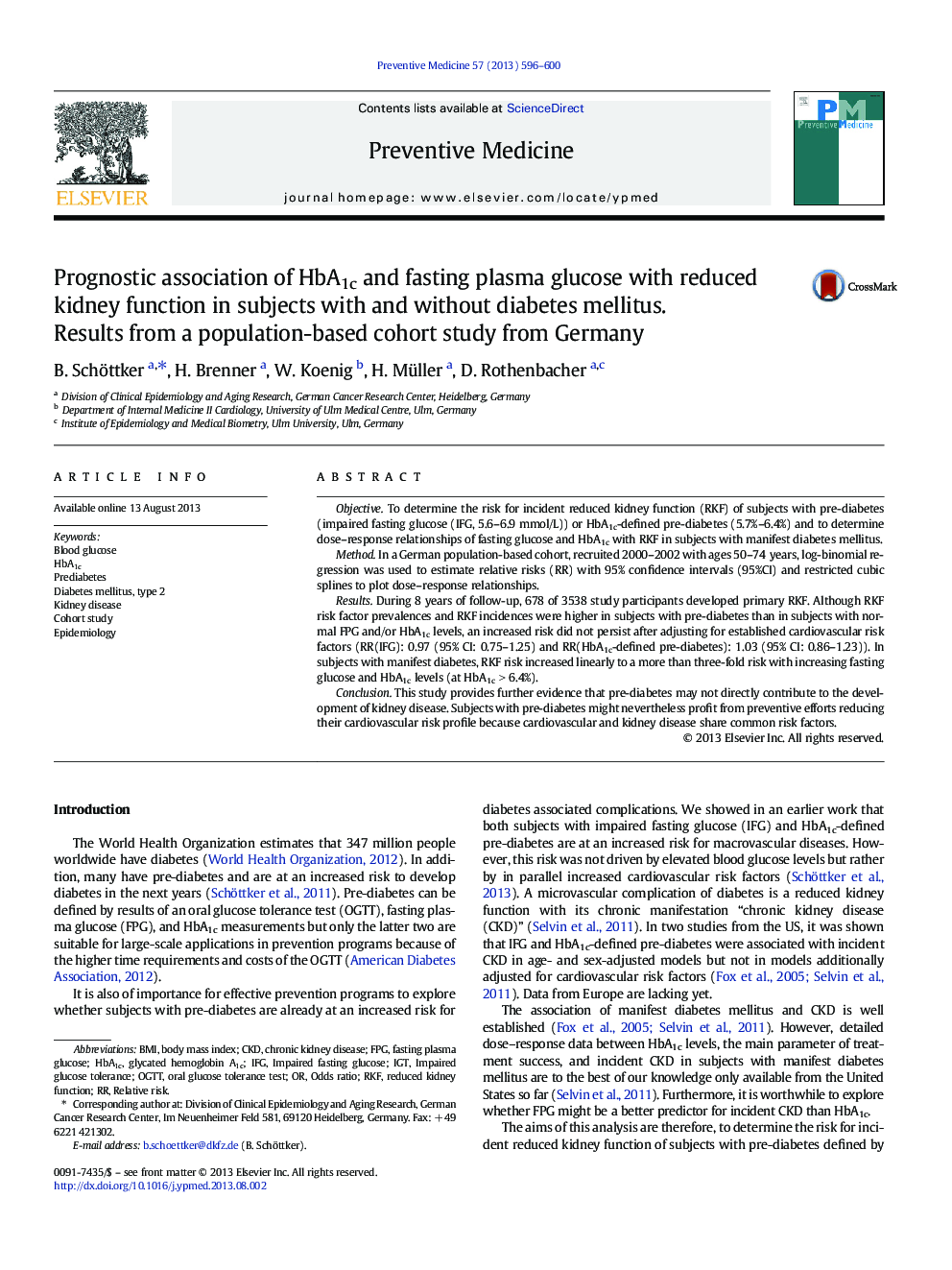| کد مقاله | کد نشریه | سال انتشار | مقاله انگلیسی | نسخه تمام متن |
|---|---|---|---|---|
| 6047495 | 1191198 | 2013 | 5 صفحه PDF | دانلود رایگان |

- Subjects with pre-diabetes showed increased cardiovascular risk factors (CVRF).
- Subjects with pre-diabetes had higher incidence of reduced kidney function (RKF).
- Pre-diabetes was not predictive for RKF after adjustment for CVRF.
- Results were independent from using fasting glucose or HbA1c to define pre-diabetes.
- In diabetes patients, RKF risk increased linearly with glucose and HbA1c levels.
ObjectiveTo determine the risk for incident reduced kidney function (RKF) of subjects with pre-diabetes (impaired fasting glucose (IFG, 5.6-6.9 mmol/L)) or HbA1c-defined pre-diabetes (5.7%-6.4%) and to determine dose-response relationships of fasting glucose and HbA1c with RKF in subjects with manifest diabetes mellitus.MethodIn a German population-based cohort, recruited 2000-2002 with ages 50-74 years, log-binomial regression was used to estimate relative risks (RR) with 95% confidence intervals (95%CI) and restricted cubic splines to plot dose-response relationships.ResultsDuring 8 years of follow-up, 678 of 3538 study participants developed primary RKF. Although RKF risk factor prevalences and RKF incidences were higher in subjects with pre-diabetes than in subjects with normal FPG and/or HbA1c levels, an increased risk did not persist after adjusting for established cardiovascular risk factors (RR(IFG): 0.97 (95% CI: 0.75-1.25) and RR(HbA1c-defined pre-diabetes): 1.03 (95% CI: 0.86-1.23)). In subjects with manifest diabetes, RKF risk increased linearly to a more than three-fold risk with increasing fasting glucose and HbA1c levels (at HbA1c > 6.4%).ConclusionThis study provides further evidence that pre-diabetes may not directly contribute to the development of kidney disease. Subjects with pre-diabetes might nevertheless profit from preventive efforts reducing their cardiovascular risk profile because cardiovascular and kidney disease share common risk factors.
Journal: Preventive Medicine - Volume 57, Issue 5, November 2013, Pages 596-600